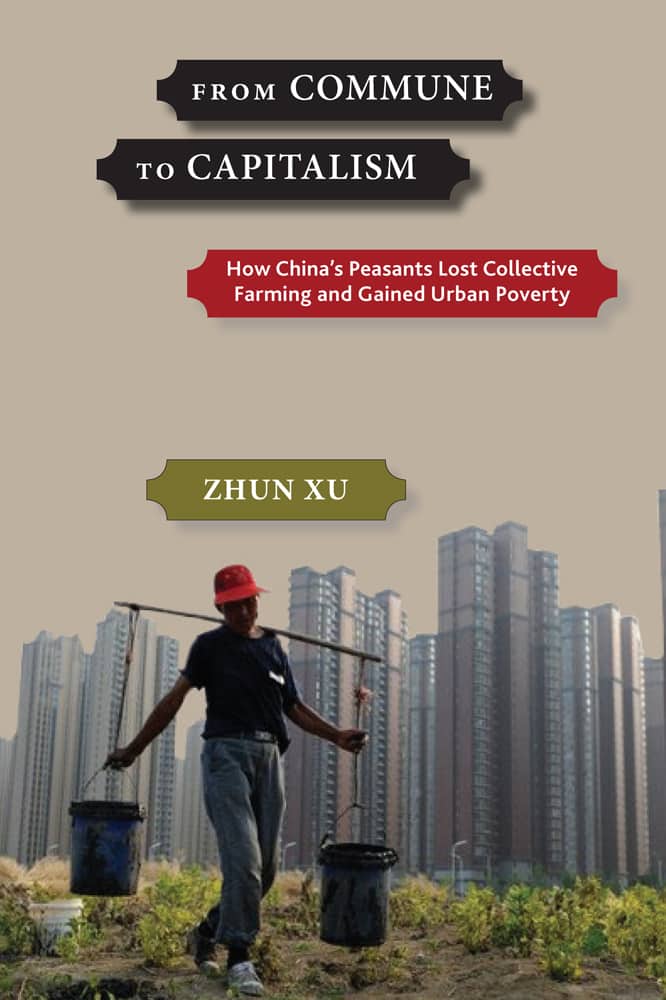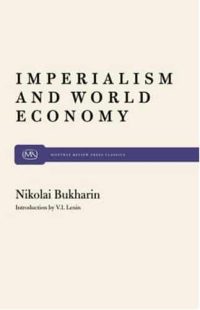From Commune to Capitalism: How China’s Peasants Lost Collective Farming and Gained Urban Poverty
$20.00 – $95.00
In the early 1980s, China undertook a massive reform that dismantled its socialist rural collectives and divided the land among millions of small peasant families. Known as the decollectivization campaign, it is one of the most significant reforms in China’s transition to a market economy. From the beginning, the official Chinese accounts, and many academic writings, uncritically portray this campaign as a huge success, both for the peasants and the economy as a whole. This mainstream history argues that the rural communes, suffering from inefficiency, greatly improved agricultural productivity under the decollectivization reform. It also describes how the peasants, due to their dissatisfaction with the rural regime, spontaneously organized and collectively dismantled the collective system.
A closer examination suggests a much different and more nuanced story. By combining historical archives, field work, and critical statistical examinations, From Commune to Capitalism argues that the decollectivization campaign was neither a bottom-up, spontaneous peasant movement, nor necessarily efficiency-improving. On the contrary, the reform was mainly a top-down, coercive campaign, and most of the efficiency gains came from simply increasing the usage of inputs, such as fertilizer, rather than institutional changes. The book also asks an important question: Why did most of the peasants peacefully accept this reform? Zhun Xu answers that the problems of the communes contributed to the passiveness of the peasantry; that decollectivization, by depoliticizing the peasantry and freeing rural labor to compete with the urban workers, served as both the political and economic basis for consequent Chinese neoliberal reforms and a massive increase in all forms of economic, political, and social inequality. Decollectivization was, indeed, a huge success, although far from the sort suggested by mainstream accounts.
Zhun Xu’s careful analysis debunks the conventional wisdom about the supposed failure of agricultural collectives in China. Xu’s reassessment of the path of agrarian change in China since 1949, which relies on interviews with peasants as well as statistical analysis, provides a fascinating window into the successes and the problems of collective farming in China.
—David M. Kotz, Professor of Economics, University of Massachusetts Amherst; author, The Rise and Fall of Neoliberal Capitalism
Zhun Xu is Assistant Professor of Economics at Howard University. His research interests include political economy, social development, and the Chinese economy. His recent publications appear in American Journal of Public Health, Journal of Agrarian Change, World Development, and Review of Radical Political Economics.
Number of Pages: 154
Publication Date: July 2018
Cloth ISBN: 978-1-58367-699-8
eBook ISBN: 978-1-58367-700-1
Paperback ISBN: 978-1-58367-698-1
Related products
-
Monthly Review Volume 2, Number 7 (November 1950) [PDF]
$10.00 Add to cart -
Monthly Review Volume 2, Number 3 (July 1950) [PDF]
$10.00 Add to cart -
Monthly Review Volume 1, Number 10 (February 1950) [PDF]
$10.00 Add to cart -
Monthly Review Volume 1, Number 7 (November 1949) [PDF]
$10.00 Add to cart -
Monthly Review Volume 1, Number 5 (September 1949) [PDF]
$10.00 Add to cart -
Imperialism and World Economy
$15.00 Select options This product has multiple variants. The options may be chosen on the product page

![Monthly Review Volume 2, Number 7 (November 1950) [PDF]](https://monthlyreview.org/wp-content/uploads/2015/09/Monthly Review Volume 2, Number 7 (November 1950) [PDF].jpg)
![Monthly Review Volume 2, Number 3 (July 1950) [PDF]](https://monthlyreview.org/wp-content/uploads/2015/09/Monthly Review Volume 2, Number 3 (July 1950) [PDF].jpg)
![Monthly Review Volume 1, Number 10 (February 1950) [PDF]](https://monthlyreview.org/wp-content/uploads/2015/09/Monthly Review Volume 1, Number 10 (February 1950) [PDF].jpg)
![Monthly Review Volume 1, Number 7 (November 1949) [PDF]](https://monthlyreview.org/wp-content/uploads/2015/09/Monthly Review Volume 1, Number 7 (November 1949) [PDF].jpg)
![Monthly Review Volume 1, Number 5 (September 1949) [PDF]](https://monthlyreview.org/wp-content/uploads/2015/09/Monthly Review Volume 1, Number 5 (September 1949) [PDF].jpg)
